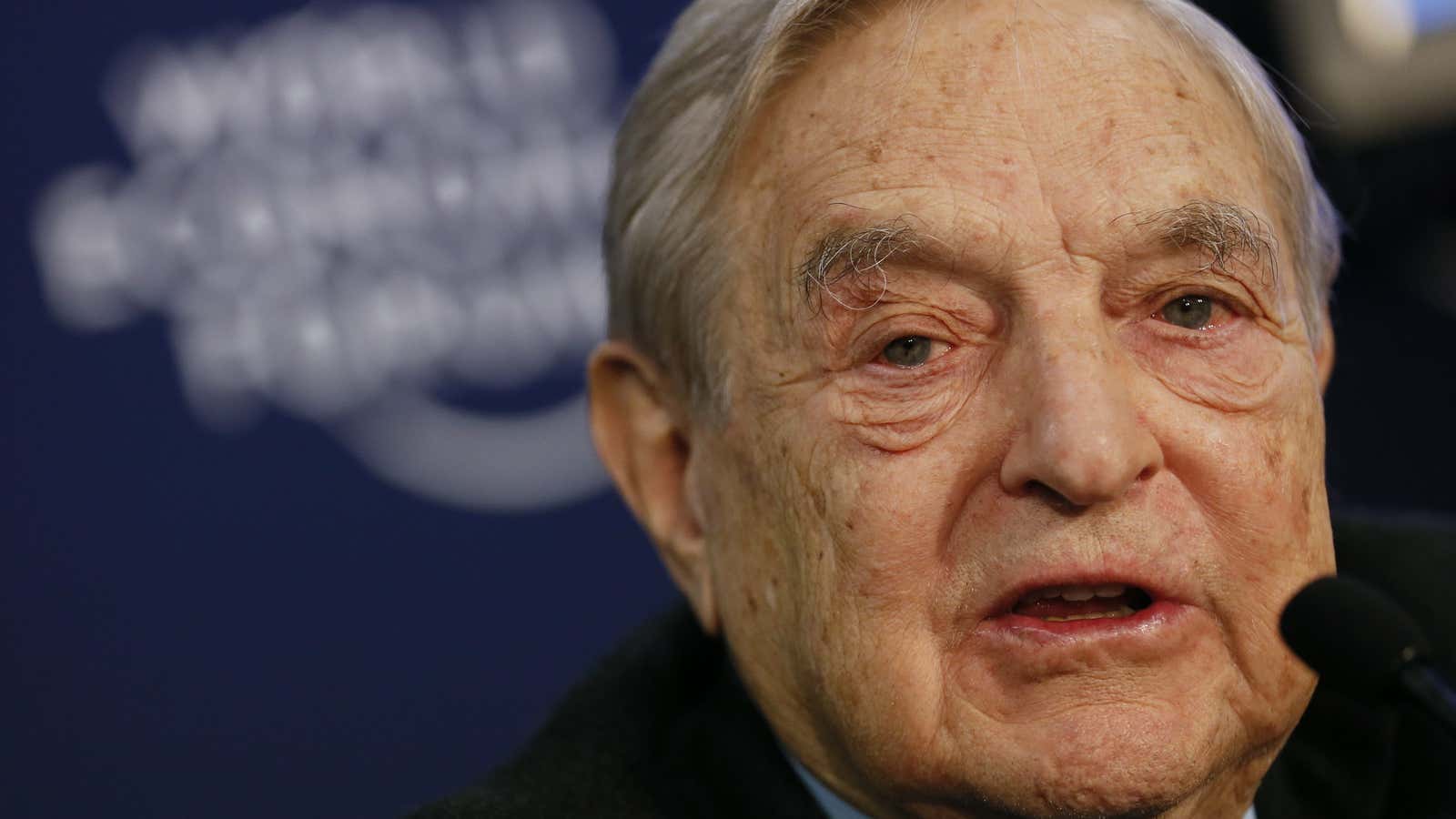It was so important that George Soros said it twice: “Our civilization may not survive.”
Soros was addressing his guests at the customary dinner-cum-speech he delivers at Davos during every World Economic Forum (WEF). The last time he spoke was January 2020, before the pandemic canceled the WEF for two-and-a-half years. But in a half-hour address that mostly ignored covid—and also climate change and inequality—Soros focused on the authoritarianism of Xi Jinping and the war-mongering of Vladimir Putin.
In 2020, Soros had spotted small, hopeful shoots of popular rebellion against tyranny. This year, as his guests ate chicken and polenta, Soros could only pick out Western aid to Ukraine and the resistance of Ukrainians as silver linings. The war, Soros said, “has shaken Europe to its core…Even when the fighting stops, as it eventually must, the situation will never revert to what it was before.”
George Soros worries that societies are shutting down
In a way, it is perhaps inevitable, given his biography, that Soros feels most anxious about the dangers of totalitarian leaders, particularly in Eastern Europe. In his youth, Soros saw his native Hungary first occupied by the Nazis and then folded into the Soviet sphere of influence. The experiences prompted him, after he became wealthy in the West, to engage in what he calls “political philanthropy.” In 1984, he said, he gave $3 million to political causes; three years later, he gave more than $300 million. The Open Society Foundations, established by him in 1993, offer grants to organizations that advance liberal freedoms.
At Davos, Soros slow-jammed the news of the last three months as he described how Xi and Putin were endangering the world. Xi is aiming for an unprecedented third term as China’s precedent, Soros said—part of the reason that China is pursuing a zero-covid policy in its major cities. “This has driven Shanghai to the verge of open rebellion,” Soros claimed, and driven China’s economy into free-fall. Putin’s atrocities, meanwhile, might mark “the beginning of the Third World War,” Soros said, although he commended European leaders in banding together against Russia.
In his survey, though, Soros didn’t mention how covid wrecked and shut down societies in its own way, in the West as well as elsewhere. He didn’t point to the inequalities of wealth that yawned wider and wider through the pandemic. And he mentioned climate change only in the context of its having taken second place to the Ukraine war—a hierarchy of concerns that is perhaps not as readily shared by other parts of the world.
Nevertheless, as Mark Malloch-Brown, the president of the Open Society Foundations, hinted in his own remarks, there was something both moving and sad in Soros’ speech. Soros seems to have spent most of his life raging against illiberalism and dictatorship. He is now nearly 92, and yet he is being presented with new despotisms to denounce, and new possibilities for the end of the world as he knows it.
